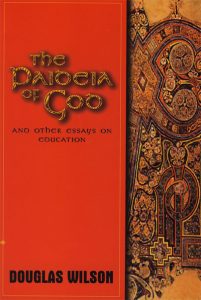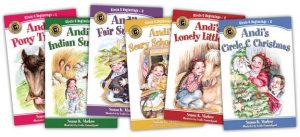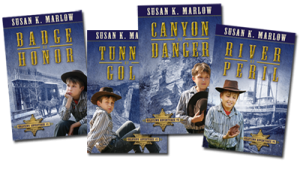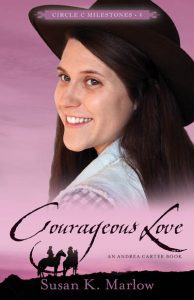
Wilson’s collection of essays on education runs the gamut from profoundly relevant to homeschooling (the purpose and meaning of education) to irrelevant but interesting (school clothes and vouchers).
“The Paideia of God” was an encouraging eye-opener to me. Christian homeschoolers often refer to Deuteronomy 6 for homeschooling inspiration. Douglas Wilson, a minister, turns to Ephesians 6:4 as well, that little verse we know but only understand partially: “Fathers, do not provoke your children to anger but bring them up in the discipline and instruction of the Lord.” The meaning of this verse includes nurturing them in the faith and shaping their will and their mind by careful teaching, but to the average Ephesian citizen in those days it would have meant much, much more. It would have involved all of daily life; in our days it would include, besides academics, everything from best-seller lists and media to school buses and green garden hoses.
The word paideia, which Paul uses, was a central concept to the classical mind and represented an enormous ideological task. It was ‘concerned with nothing less than the shaping of the ideal man, who would be able to take his place in the ideal culture,’ and ‘the point of paideia was to bring that culture about.’ Paul was thus giving a command that covers incredibly more than our idea of education; he was talking about training the children to be enculturated in the culture of the Lord and in this way to create that culture in the world. It’s not about giving them enough education to make a living; it’s about changing the world for Christ and is therefore ‘one of the most far reaching commands of the New Testament.’ This is something we parents need to realize, both in our teaching and in our considerations about our culture.
I had read enough about classical society to realize that they did have this idea of an ideal citizen and that it had something to do with education, but this is the first time I really understood the concept.* And what a happy concept it is for Christian parents! Occasionally society makes it seem as though raising children is not worth our energy; according to Paul, it is a fundamental calling. And this point of view certainly leaves no room for letting our kids be ‘missionaries in the public school classroom’.
Until the final chapter, the rest of the book is only marginally relevant to homeschooling, but it does raise some important points.
“Teaching ‘Disadilities’” addresses one of the main topics in classroom education today. There are all sorts of reasons for the huge increase of disabilities, from drugging our children to laziness of both teachers and students. The big question, however, is ‘are our children failing or are we failing our children?’ This is a vital question for children in schools.
In “The Biblical Meaning of School Clothes” Wilson points out that clothes reflect important social realities. Although we often emphasize comfort, our clothing habits reflect mind habits. Following Wilson’s train of thought, learning in one’s pyjamas is not going to be as effective as learning in a school uniform. I’ve often wondered about that in terms of posture: can one learn as well lying down as sitting straight up at a table? Perhaps related: I can sometimes predict the mark of a test by observing how neatly my children wrote. Back to Wilson and clothing: politeness expresses itself in the clothing we choose.
In “Does Classical mean Reformed?” Wilson observes that classical education, standing firmly in the tradition of historic Protestant orthodoxy, is closely related to Reformed ideas, such as
- since God is at the center of everything, we need to teach each subject with him at the center, and
- since God is in control of everything, studying history is studying how he works.
Wilson notes that classical homeschooling often leads to parents investigating Reformed theology, although classical does not necessarily mean Reformed.
“The Great Logic Fraud,” an essay warning about the dangers inherent in classical education, can be summed up in its last sentence, ‘So raise the standard. And lighten up.’ Here’s why.
‘In the realm of education the teacher must recognize the existence of countless variables outside his control….’ We must recognize that ‘rationalism’ is not the aim of education but merely one useful tool in it, ‘…a tool that prepares the student for the real business before him, which is, of course, the cultivation of a love of truth, goodness, and beauty.’ (p. 103)
This is off-topic, perhaps, but I always wonder how this goal of classical education relates to the Bible. I’m sure entire books could be written on the concept, and probably they have been. To me, the real business before Christian students is to learn and be equipped to love the Lord their God with all their hearts, souls, minds, and strength, and their neighbor as themselves. Loving truth, goodness, and beauty is only part of that.
“Classical Learning and the Christian College”
And finally, an essay that delves into the meaning and purpose of education. Although Wilson discusses college education, a very important topic for parents who have invested years in educating their children themselves, the things he says about education are also relevant for our homeschools, whether or not we aim for a classical education.
One of his fundamental conclusions, and it is a pity and an indictment of the modern evangelical worldview that must be said, is that there is no conflict between believing the Bible and learning well. For example, often homeschoolers discuss the ‘issue’ of character vs academics. It should not be an issue, and it can become that only when we have wrong ideas about many things. This essay discusses some of them and is worth reading.
Much of the rest of this essay is explained by a quotation from J. Gresham Machen about taking ‘every thought captive to obey Christ’ (2 Cor. 10:5).
The Christian cannot be satisfied so long as any human activity is either opposed to Christianity or out of all connection with Christianity. Christianity must pervade not merely all nations, but also all of human thought. The Christian, therefore, cannot be indifferent to any branch of earnest human endeavor. It must all be brought into some relation to the gospel. It must be studied either in order to be demonstrated as false, or else in order to be made useful in advancing the Kingdom of God. (p. 123)
Indeed, Christian education is not about being trained to be a worker and consumer. Rather, Christian education is about learning to live as a Christian, conquering the whole world for Christ, and, in the process, developing a Christian culture. The fact that this is unlikely to ever succeed on this earth does not make it any less a duty or any less of an inspiration.
As we face this monumental task, Wilson stands beside us and lays an encouraging hand on our shoulders, saying with characteristic bluntness: ‘As we observe the modern world, we should take a great deal of comfort from the following maxim: over time, stupidity doesn’t work.’ (p. 143)
The first and last essays of The Paideia of God are so important that this book should find a home in most church and homeschooling libraries. If that is not possible, at least borrow the book via interlibrary loan to read these two chapters; you may end up wanting to buy it.
*I will revisit the classical concept of paideia an upcoming review of Norms and Nobility, Lord willing.
Disclosure: We have owned this book for years; I have expressed my own honest opinions and am not compensated for this review in any way.
—
If you enjoyed this article, you might want to follow me on Google+ where I often mention helpful or interesting ideas, or connect with me on GoodReads where I share what I read.





